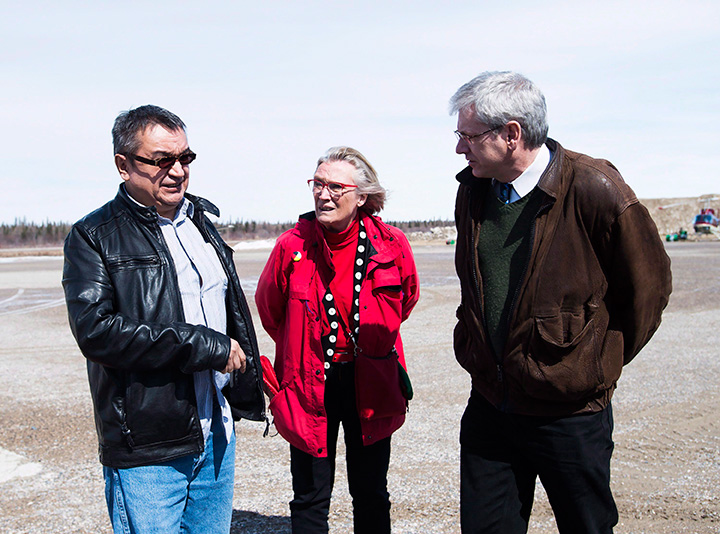The federal ministers of Indigenous and Northern Affairs and Justice confirmed today that Canada will “fully adopt and work to implement” the terms of the United Nations Declaration on the Rights of Indigenous Peoples.

Carolyn Bennett and Jody Wilson-Raybould made the announcement at the United Nations in New York City on Monday afternoon.
READ MORE: How an old recessionary plan may be keeping Canada’s First Nations in ‘third world’ conditions
“We want to demonstrate today and in these coming weeks our commitments to ensure that all Canadians have a truly concrete roadmap to reconcile with indigenous people,” said Bennett.
“I am pleased to confirm that tomorrow it is Canada’s intention to remove our permanent objector status and become a full supporter of the United Nations Declaration on the Rights of Indigenous Peoples,” she added.
The endorsement represents a shift in policy away from that of the Conservative government, which placed Canada among four countries that did not support the declaration.
The Tories supported the declaration in principle, but took issue with its provisions around land claims and the degree of free and informed consent needed in resource development, among others. “These concerns are well known and remain,” they said in a 2010 statement.
Monday’s announcement confirms Canada’s obligation to work with indigenous communities on a range of issues, including natural resource development, land claim disputes and First Nations’ right to self-determination.
It also makes good on Prime Minister Justin Trudeau’s campaign promise to accept the UNDRIP and to fully implement recommendations made by Sen. Murray Sinclair in his final report delivered before the Truth and Reconciliation Commission of Canada last summer. Sinclair chaired the commission before he was appointed to the Senate in March.
WATCH BELOW: 16×9’s “Failing Canada’s First Nations Children”
Central to the declaration is the idea of “free and informed” prior consent – the notion that the government must consult indigenous groups before making any decision that might impact their way of life or their ability to exercise rights over traditional lands and territories.
Legislative impact
Although the UNDRIP is not legally-binding, meaning Canada cannot be forced to honour any of its commitments, it has already been used by Canadian courts to interpret, apply and develop new laws, said Max Faille, a lawyer and Aboriginal law expert. Removing Canada’s permanent objector status, he said, will accelerate this process and add momentum to the push toward greater indigenous rights and freedoms in Canada.
A major concern of those opposed to Canada endorsing the UNDRIP is that it may lead to economic gridlock, and that forcing governments to negotiate with First Nations and other indigenous communities will hinder future development. But Faille believes these concerns are unfounded, and that growth will not only continue, but will prosper under a system in which indigenous communities are properly consulted.
“Where indigenous communities have been given a meaningful say in decision-making around resource development in their territories, this has ultimately served to generate support for that development.”
Faille also points out that while the assumption is that First Nations do not want to see development on their traditional territories, many First Nations do support sustainable development – though not at any cost.
Both Bennett and Wilson-Raybould have said that Canada will work to fully implement the UNDRIP into federal law and legislation. They have also committed to working with the provinces and territories, municipalities and private industry to ensure that indigenous rights in Canada are respected.
What the announcement means
From a practical standpoint, the shift in policy re-affirms what the Supreme Court of Canada has already said – that governments must consult indigenous groups prior to making decisions that might impact their lives. From a symbolic standpoint, the decision to embrace the declaration aligns Canada with the majority of UN members.
An example of what improved indigenous self-governance might look like is the case of the Haida Nation. As the result of an ongoing land claim dispute, the Haida have signed a number of key agreements with both the government of B.C. and Ottawa granting them significant control over the forest, fishing and mining industries of Haida Nation traditional territories.
READ MORE: Failing Canada’s First Nations children
Coincidentally, Trudeau has a Haida Raven tattooed over his shoulder.
The UNDRIP was passed in 2007 by the General Assembly by a vote of 144 to 4. Only Australia, New Zealand, the United States and Canada opposed it.

Comments